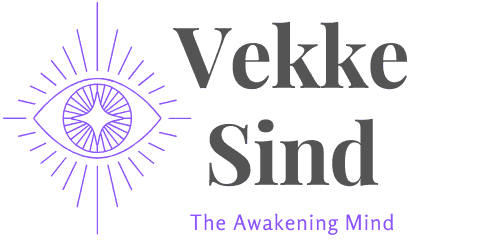Astrology is an ancient practice that has been used for centuries to gain insight into an individual’s personality, relationships, and life path. One of the most important tools in astrology is the birth chart, which is a map of the sky at the exact moment of an individual’s birth.
The birth chart is divided into 12 sections, known as houses, each of which represents a different aspect of an individual’s life.
Understanding the influence of the astrological houses on a birth chart is essential to gaining a deeper understanding of an individual’s personality, strengths, and weaknesses.
Each house represents a different area of life, such as career, relationships, and spirituality, and the planets that are located in each house can reveal important information about an individual’s character and life path.
By analyzing the placement of the planets in each house, astrologers can gain insight into an individual’s personality, strengths, and challenges.
In this article, we will explore the basics of astrological houses and their influence on a birth chart. We will discuss the meaning of each house and how to interpret the placement of planets in each house.
By the end of this article, readers will have a better understanding of the role that astrological houses play in shaping an individual’s personality and life path.
Table of Contents
Understanding Astrological Houses
The Concept of Houses

Astrological houses are an essential component of astrology that plays a significant role in interpreting an individual’s birth chart. In astrology, the sky is divided into twelve sections known as houses, each representing a different aspect of an individual’s life.
These houses are determined by the individual’s birth time, date, and location.
Each house is associated with a specific zodiac sign and represents a unique area of an individual’s life, such as personality traits, relationships, careers, and more. The houses are numbered from one to twelve, starting from the Ascendant or the first house.
The Ascendant is the zodiac sign that was rising on the eastern horizon at the time of an individual’s birth.
Role of Houses in Astrology
The houses in astrology provide insight into an individual’s life and personality. The position of the planets in each house at the time of an individual’s birth determines how the individual will experience different aspects of their life.
For instance, the first house, also known as the house of self, represents an individual’s personality, physical appearance, and overall outlook on life. The second house, also known as the house of possessions, represents an individual’s finances, material possessions, and personal values.
The houses in astrology are also used to interpret planetary transits, which refer to the movement of planets in the sky and their influence on an individual’s life.
For example, if a planet is transiting through an individual’s fourth house, which represents home and family, the individual may experience changes or challenges related to their home life.
In conclusion, understanding the concept of astrological houses is crucial in interpreting an individual’s birth chart and gaining insight into different aspects of their life.
Each house represents a unique area of an individual’s life, and the position of planets in each house provides valuable information about an individual’s personality, relationships, career, and more.
The Twelve Houses and Their Significance

In astrology, the birth chart is divided into twelve different sections known as houses, each representing a different area of life.
The houses are determined by the time and location of an individual’s birth and are an essential aspect of interpreting the birth chart. Understanding the twelve houses and their significance can provide insight into an individual’s personality, life experiences, and potential future.
First House: Self and Appearance
The first house, also known as the Ascendant or Rising sign, represents an individual’s physical appearance, personality, and self-image. It is the house of self and reflects how an individual presents themselves to the world.
Second House: Self-Worth and Resources
The second house represents an individual’s self-worth, values, and possessions. It is the house of resources and reflects an individual’s relationship with money, material possessions, and the things they value.
Third House: Communication and Siblings
The third house represents communication, learning, and siblings. It is the house of communication and reflects an individual’s communication style, how they learn, and their relationship with siblings.
Fourth House: Home and Family
The fourth house represents home, family, and ancestry. It is the house of home and reflects an individual’s relationship with their family, their childhood, and their ancestral patterns.
Fifth House: Creativity and Children
The fifth house represents creativity, self-expression, and children. It is the house of pleasure and reflects an individual’s creativity, hobbies, and their relationship with children.
Sixth House: Health and Daily Routine
The sixth house represents health, daily routine, and work. It is the house of service and reflects an individual’s work ethic, daily routine, and their relationship with health and wellness.
Seventh House: Marriage and Partnerships
The seventh house represents marriage, partnerships, and one-on-one relationships. It is the house of partnerships and reflects an individual’s relationship with others, including romantic partners, business partners, and close friends.
Eighth House: Death and Transformation
The eighth house represents death, transformation, and shared resources. It is the house of transformation and reflects an individual’s relationship with change, power, and shared resources.
Ninth House: Philosophy and Higher Education
The ninth house represents philosophy, higher education, and travel. It is the house of expansion and reflects an individual’s relationship with learning, spirituality, and travel.
Tenth House: Career and Social Status
The tenth house represents career, social status, and reputation. It is the house of public image and reflects an individual’s career ambitions, professional accolades, and how they are perceived by others.
Eleventh House: Friendships and Technology
The eleventh house represents friendships, social networks, and technology. It is the house of community and reflects an individual’s relationship with friends, groups, and technology.
Twelfth House: Unconscious and Secrets
The twelfth house represents the unconscious, secrets, and hidden aspects of the self. It is the house of endings and reflects an individual’s relationship with their inner world, spirituality, and hidden aspects of their personality.
Understanding the twelve houses and their significance can provide valuable insight into an individual’s life experiences and personality traits.
By analyzing the placement of planets within each house, astrologers can gain a deeper understanding of an individual’s potential future and how they may navigate life’s challenges and opportunities.
The Influences of Planets on Houses

Each planet in astrology is said to have a unique energy that influences different aspects of a person’s life. When a planet falls into a particular house in a birth chart, it is believed to affect the energy of that house. Here is a breakdown of the influences of different planets on the twelve houses of the zodiac:
Sun and Moon
The Sun and Moon are known as the luminaries in astrology. The Sun represents a person’s ego, identity, and self-expression, while the Moon represents emotions, intuition, and the subconscious mind.
When the Sun falls in a particular house, it is said to illuminate that area of life, bringing attention and energy to it. Similarly, when the Moon falls in a particular house, it is believed to impact a person’s emotional life and inner world.
Mercury, Venus, and Mars
Mercury, Venus, and Mars are known as the inner planets in astrology. Mercury represents communication, thought processes, and intellectual pursuits. Venus represents love, beauty, and pleasure. Mars represents energy, passion, and drive.
When these planets fall in a particular house, they are said to influence the energy of that house in their respective ways.
Jupiter and Saturn
Jupiter and Saturn are known as the social planets in astrology. Jupiter represents expansion, growth, and abundance. Saturn represents structure, discipline, and responsibility. When Jupiter falls in a particular house, it is believed to bring good fortune and opportunities in that area of life.
When Saturn falls in a particular house, it is said to bring challenges and lessons to be learned in that area of life.
Uranus, Neptune, and Pluto
Uranus, Neptune, and Pluto are known as the outer planets in astrology. Uranus represents change, innovation, and rebellion. Neptune represents spirituality, intuition, and creativity. Pluto represents transformation, power, and regeneration.
When these planets fall in a particular house, they are said to bring profound and transformative energy to that area of life.
Understanding the influences of planets on houses in astrology can provide insight into a person’s strengths, challenges, and potential growth areas in life.
By examining the placement of planets in a birth chart, an astrologer can provide guidance on how to navigate and harness these energies to live a more fulfilling life.
Zodiac Signs and Their Connection to Houses

The zodiac signs play a crucial role in determining the influence of the astrological houses on an individual’s birth chart. Each of the twelve zodiac signs is associated with a specific house, which determines the areas of life that will be affected by the planetary positions at the time of birth.
Aries to Pisces
Here is a breakdown of the zodiac signs and their connection to the houses:
Aries
Aries is associated with the first house, which represents the self, physical body, and appearance. Individuals with Aries as their sun sign or rising sign are likely to be assertive and independent, with a strong sense of self-identity.
Taurus
Taurus is associated with the second house, which represents value, money, self-worth, and possessions. Individuals with Taurus as their sun sign or rising sign are likely to be focused on financial stability and material possessions.
Gemini
Gemini is associated with the third house, which represents communication, early schooling, and siblings. Individuals with Gemini as their sun sign or rising sign are likely to be skilled communicators, with a love for learning and a close relationship with their siblings.
Cancer
Cancer is associated with the fourth house, which represents home, family, and ancestral patterns. Individuals with Cancer as their sun sign or rising sign are likely to be nurturing and family-oriented, with a strong connection to their roots and traditions.
Leo
Leo is associated with the fifth house, which represents romance, play, and creativity. Individuals with Leo as their sun sign or rising sign are likely to be confident and expressive, with a love for the arts and a desire for attention and admiration.
Virgo
Virgo is associated with the sixth house, which represents daily routines, work, and health. Individuals with Virgo as their sun sign or rising sign are likely to be detail-oriented and hardworking, with a focus on maintaining a healthy lifestyle.
Libra
Libra is associated with the seventh house, which represents committed partnerships. Individuals with Libra as their sun sign or rising sign are likely to value balance, harmony, and fairness in their relationships.
Scorpio
Scorpio is associated with the eighth house, which represents transformation, shared resources, and intimacy. Individuals with Scorpio as their sun sign or rising sign are likely to be intense and passionate, with a desire for deep emotional connections and a fascination with the mysteries of life.
Sagittarius
Sagittarius is associated with the ninth house, which represents higher education, travel, and philosophy. Individuals with Sagittarius as their sun sign or rising sign are likely to be adventurous and curious, with a love for learning and exploring new cultures and ideas.
Capricorn
Capricorn is associated with the tenth house, which represents public image, career ambitions, and professional accolades. Individuals with Capricorn as their sun sign or rising sign are likely to be ambitious and hardworking, with a desire for success and recognition in their chosen field.
Aquarius
Aquarius is associated with the eleventh house, which represents social groups, friendships, and humanitarian causes. Individuals with Aquarius as their sun sign or rising sign are likely to be innovative and unconventional, with a passion for social justice and a desire to make the world a better place.
Pisces
Pisces is associated with the twelfth house, which represents spirituality, dreams, and the unconscious mind. Individuals with Pisces as their sun sign or rising sign are likely to be intuitive and compassionate, with a deep connection to their inner selves and the universe as a whole.
Interpreting Your Birth Chart

Interpreting your birth chart can be a complex process, but understanding the different components of your chart can provide valuable insights into your personality, strengths, and challenges. Here are some key elements to consider when interpreting your birth chart.
The Ascendant
The Ascendant, also known as the rising sign, is the zodiac sign that was rising on the eastern horizon at the time of your birth. It is one of the most important components of your birth chart, as it represents the way you present yourself to the world and the first impression you make on others.
Your ascendant can provide insights into your physical appearance, personality traits, and overall approach to life.
It can also influence your relationships and career path. For example, someone with a Leo ascendant may be charismatic and confident, while someone with a Pisces ascendant may be more sensitive and intuitive.
The Natal Chart
The natal chart is a map of the positions of the planets at the time of your birth. It is divided into twelve houses, each of which represents a different area of your life, such as career, relationships, and spirituality.
The planets in your chart can provide insights into your personality, strengths, and challenges, while the houses can show where you are likely to experience success, obstacles, and growth.
Interpreting your natal chart requires a deep understanding of astrology and the meanings of the planets and houses. A professional astrologer can help you make sense of your chart and provide personalized insights and guidance.
The Yearly Horoscope
Your yearly horoscope is based on the movements of the planets in relation to your birth chart. It can provide insights into the themes and opportunities that are likely to arise in the coming year, as well as the challenges you may face.
Interpreting your yearly horoscope requires an understanding of the transits and progressions of the planets, as well as the meanings of the houses they are moving through.
A professional astrologer can provide personalized insights and guidance based on your unique birth chart and current planetary influences.
Overall, interpreting your birth chart can provide valuable insights into your personality, strengths, and challenges. While it can be a complex process, working with a professional astrologer can help you make sense of your chart and gain a deeper understanding of yourself and your life path.



